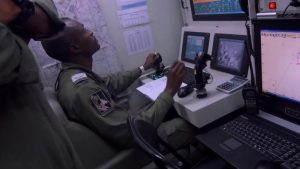Air Chief Reveals Soaring Nigerian Air Force Operational Costs: One Strike Can Exceed $300,000
By: Zainab Uzoma | IDNN Defence Desk
The Chief of Air Staff, Air Marshal Hasan Abubakar, has raised serious fiscal concerns over the Nigerian Air Force operational costs, revealing that a single drone strike mission can cost the nation over $300,000 — excluding logistics and maintenance.
Speaking in Abuja during a media parley to mark the 61st anniversary of the Nigerian Air Force (NAF), the Air Chief painted a sobering picture of Nigeria’s expanding military spending across multiple security theatres.
“Deploying a Wing Loong II UAV to eliminate 10 or 20 terrorists can cost the country more than $300,000 in munitions alone,” Abubakar explained.
High-Precision Warfare Comes at High Cost

The Wing Loong II, a Chinese-made unmanned aerial system, is central to many of the Air Force’s precision engagements. According to Abubakar, a single missile fired by the UAV costs $156,000, while its bomb payload is priced between $95,000 and $96,000.
“When you factor in man-hours, aviation fuel, technical maintenance, and mission logistics, the actual figure climbs even higher,” he added.
Between late 2023 and mid-2024, the NAF executed nearly 6,000 missions across Nigeria’s conflict zones, flying over 10,500 hours in 7,000 sorties. These operations ranged from armed reconnaissance and ISR (intelligence, surveillance, and reconnaissance) to air interdiction and tactical raids.
Cost vs. Collateral Risk in Conflict Zones
The Air Chief emphasized that precision warfare is not just expensive but requires even greater caution due to civilian presence in hostile areas.
“We’ve limited the use of general-purpose munitions in favour of more controlled strikes. Every engagement is weighed carefully to avoid collateral damage,” he said.
He further noted that public support is essential as the Air Force cannot carry the burden of national defence alone.
“Other institutions must rise to support our security objectives. The Air Force is overstretched financially, and national coordination is key,” he urged.
